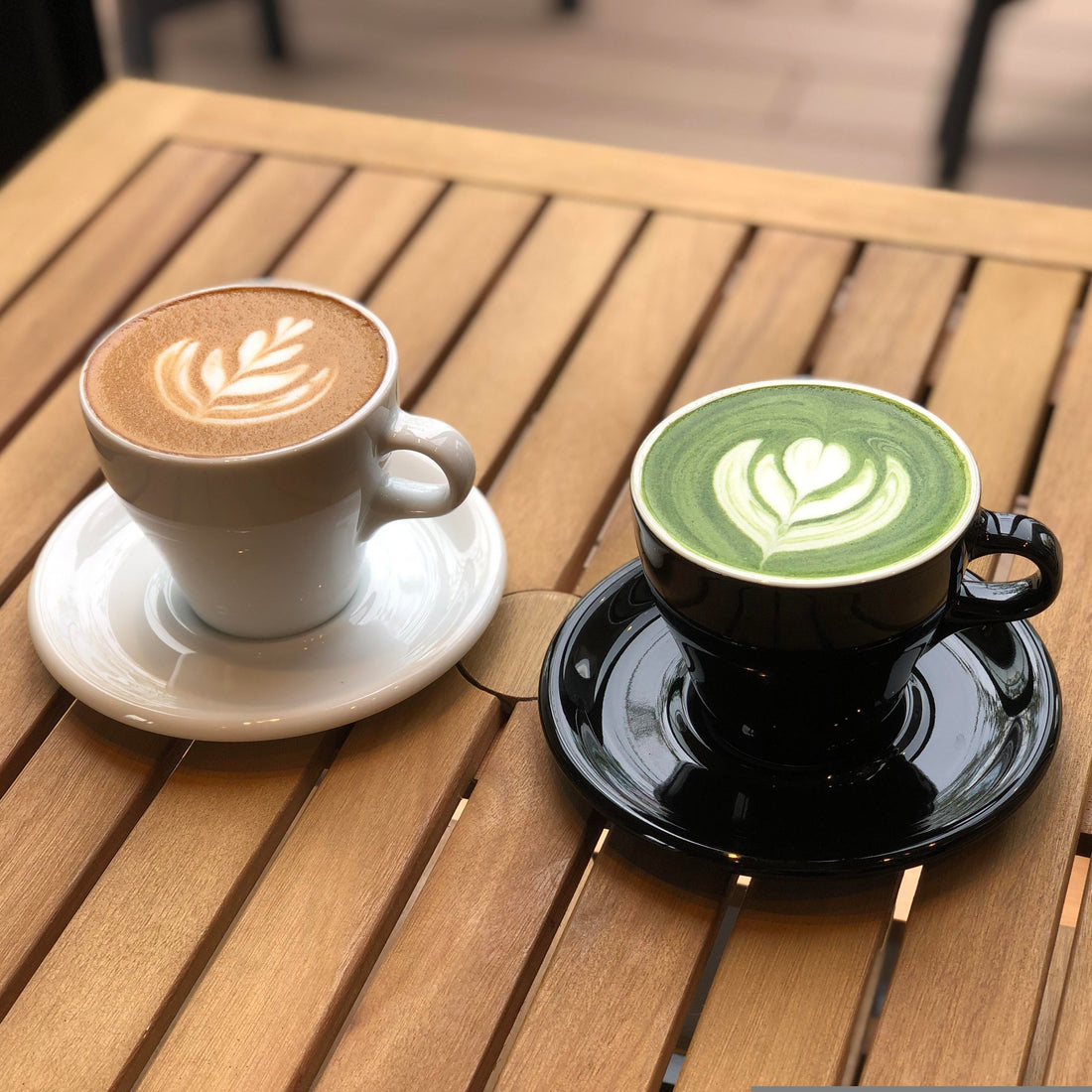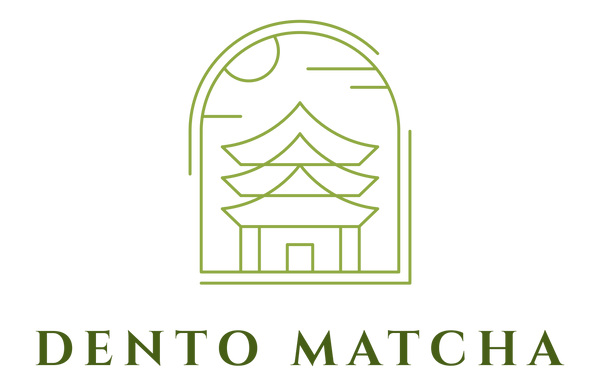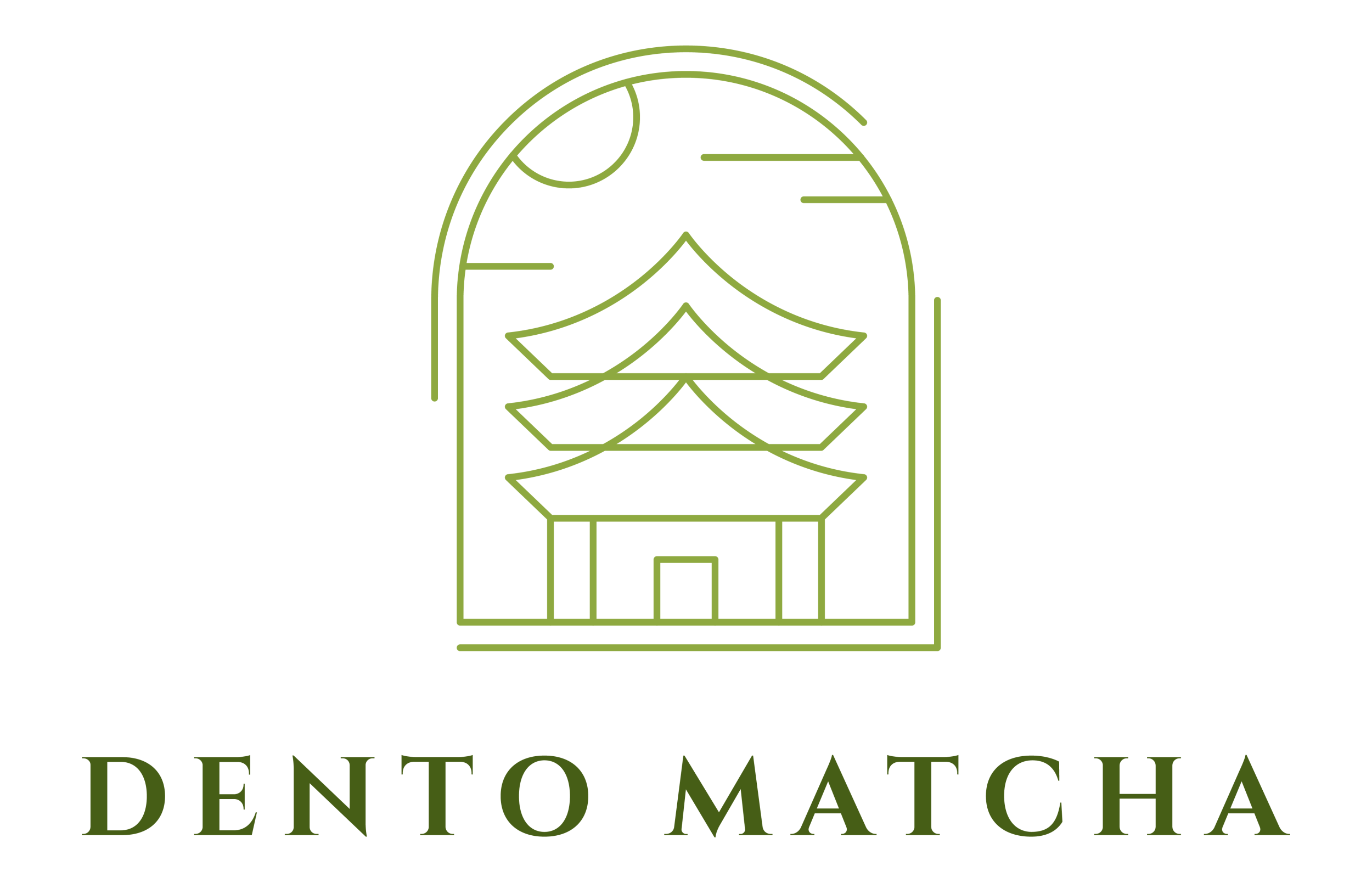
Why Matcha Triumphs Over Coffee: Healthier and More Energizing
Share
In the world of caffeinated beverages, coffee has long reigned supreme. Its robust flavor and potent kick of caffeine have made it a staple morning ritual for millions worldwide. However, there's a new contender in town: matcha. Originating from Japan, matcha has been gaining popularity in recent years, and for good reason. In this post, we'll explore why matcha is not just a trendy alternative to coffee, but a superior choice in many aspects.
1. Sustained Energy Boost:
Unlike coffee, which can lead to energy crashes and jitters due to its rapid spike in caffeine levels, matcha provides a more sustained release of energy. Matcha contains L-theanine, an amino acid that works synergistically with caffeine to promote a calmer, more focused state of alertness without the crash.
2. Antioxidant Powerhouse:
Matcha is packed with antioxidants, particularly catechins, which have been shown to have cancer-fighting properties, boost metabolism, and support heart health. In fact, matcha contains significantly higher levels of antioxidants compared to coffee, making it a potent ally in promoting overall well-being.
3. Gentle on the Stomach:
Coffee can be harsh on the stomach for some people, leading to acid reflux, upset stomach, and digestive discomfort. Matcha, on the other hand, is alkalizing and generally gentler on the digestive system, making it a suitable choice for those with sensitive stomachs.
4. Nutrient Density:
When you drink matcha, you're consuming the whole tea leaf, which means you're getting all the nutrients it has to offer, including vitamins (A, C, E, K), minerals (potassium, magnesium, iron), and fiber. Coffee, in comparison, provides little to no nutritional value.
5. Enhanced Focus and Concentration:
The combination of caffeine and L-theanine in matcha not only provides an energy boost but also enhances mental clarity, focus, and concentration. This makes matcha an ideal choice for productivity and cognitive performance throughout the day.
6. Versatility in Culinary Applications:
While coffee is primarily consumed as a beverage, matcha offers versatility in culinary applications. It can be incorporated into a wide range of recipes, including smoothies, lattes, desserts, and savory dishes, adding a unique flavor and vibrant green hue.
7. Sustainable and Environmentally Friendly:
Matcha production involves shade-growing the tea plants, which not only enhances the flavor and nutrient profile but also promotes environmental sustainability. Additionally, matcha is traditionally stone-ground, preserving the integrity of the tea leaves and minimizing waste.
8. Cultural Heritage and Ritual:
Matcha has a rich cultural heritage rooted in Japanese tea ceremonies, where it is revered for its ceremonial significance and mindfulness-enhancing properties. Incorporating matcha into your daily routine can add a sense of ritual and mindfulness to your day, promoting holistic well-being.
In conclusion, while coffee certainly has its merits, matcha emerges as a healthier and more energizing alternative with a plethora of benefits for both body and mind. Whether you're seeking sustained energy, antioxidant protection, or enhanced focus, matcha offers a compelling case for making the switch. So why not trade your morning cup of joe for a soothing bowl of matcha and experience the vibrant green goodness for yourself?

